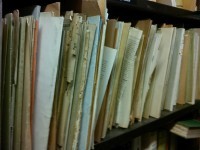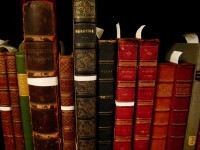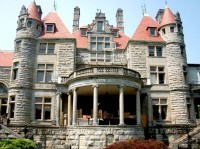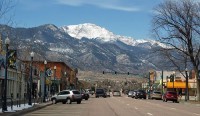Enter the Blogosphere I promised another Facebook related post this week, but instead I think it's time to switch gears and get acquainted with some other social media options out there before you start to think that I'm on Mark Zuckerberg's payroll. This week I will consider the pros and cons of blogging as well as some of the better sites out there that support the endeavor. The fact that anyone with an internet connection and an email address can start a blog means that there is a huge range out there in terms of content as well as quality. And indeed, it sometimes feels like everyone and their cat has a blog these days. But as you will see, although it's a fairly easy thing to set up, it takes more than good intentions to sustain a blog over time. Nevertheless, the idea of having your own virtual soap box makes blogging an attractive option – and then of course there's always the hope that your blog will go viral and land you a six figure publishing contract and movie deal. Unfortunately, more often than not it will go something like this: Mr. Whiskers gets a great idea for a blog, writes two posts, and then gets “too busy” to update it for a year or three. Needless to say, don't follow Mr. Whiskers's example (I hear he's kind of aloof anyway). Blogging, like the rest of social media, takes a commitment from you in order to be a useful tool for your business. It can be a tougher pursuit in terms of time management because most blog entries tend to be quite a bit lon... [more THE SAVVY BOOKSELLER: Social Media for the Antiquarian Book Trade, Post #5]
Bookselling
The following is an excerpt from the third chapter of Collecting, Curating, And Researching Writers' Libraries, A Handbook, edited by Richard Oram and Joseph Nicholson (Rowman & Littlefield, 2014). This chapter deals with the role of the bookseller; other chapters deal with the roles of librarians, curators, and researchers, with accounts of some libraries, a list of authors' libraries preserved in public and private hands, and interviews conducted by Oram and MacDonnell with five well-known authors who describe candidly just how they organize and use their books. In this chapter MacDonnell outlines the five-stage process a bookseller employs when assessing a writer's library: defining what is in the library; assessing its salability; providing valuation; preparing the library for sale; and finally, negotiating its sale. The full article, as well as information on how to order a discounted copy, can be found here. III. The First Order of Business: Defining the Library A bookseller's first order of business when dealing with an author's library is defining just what comprises the author's library. This sounds simple, but books are often mixed with magazines and miscellaneous papers, and the day may soon be coming when an author might have more titles stored on his e-reader than on his shelves. An author might also have listened to audio books, now lurking on CDs or MP3s in some nearby device like a laptop, or iPhone, etc. Distinguishing an author's library from a “household�... [more Writers’ Libraries: The Bookseller’s Perspective]
Two weeks ago, I was in York for the inaugural York Antiquarian Book Seminar (a British equivalent of the highly successful Colorado Antiquarian Book Seminar). The whole experience was hugely invigorating. Here were 25 students, young and old, starting out in the rare book trade, full of promise, eagerness— and questions! One of the sessions I led was on cataloguing. For, as Roger Gaskell notes in his Terms of the Trade, "a large part of the trade in antiquarian books is conducted by catalogues, whether printed or online, and books offered in shops or at book fairs will usually be accompanied by a written description." It's those printed catalogues I want to talk about today. Earlier this year, Lorne Bair, on this very blog, waxed eloquently on the benefits of producing printed catalogues, and I agree with him wholeheartedly. People often ask me about my printed catalogues (six to date), so I thought I would share something of their history here. I set up on my own in January 2010, and right from the start I knew I wanted to do printed catalogues. I could have just sold books by e-mail, sending out PDF lists of what I have (and I do do that, too), but book collectors like books, physical objects that they can carry around, read on the bus, write comments on, mark by turning over the corner of a page. Because it is so easy now (and, of course, much cheaper) to create one's own catalogues, in Word or whatever with a few scans dropped in, that is what many booksellers do, but ... [more Catablog]
SELLING ON FACEBOOK? In my last post I talked a lot about the advantages of having a Facebook account for your business, including interacting with customers and colleagues, sharing content, getting “liked,” and learning about trends in your field; or, as one friend of mine put it, “the warm fuzzies.” So let's switch into copper baron mode here and discuss the other dimension that you've all been wondering about: how do we turn the warm fuzzies into customers and sales? The truth is that it takes time to build a following and reap the rewards of social media engagement. The real reward, in my opinion, is realized in the long-term with enriched interactions with your audience, a boost in your reputation, and more sales through your website as a result. But I would be remiss to not discuss a few other options at your disposal, so I want to look at two specific features that have been hot topics lately: Facebook storefronts and Facebook advertising. To make things simple, I'll split these services into two posts and begin today with the storefront. I actually have some pretty firm opinions about selling on Facebook (which I will share at the end for those of you who are interested), but I believe the choice is always yours. What works for one brand may not be right for another. And full disclosure: I am writing the following after careful research, not through personal experience as in previous posts, so please keep that in mind and if something piques your interest, do ... [more THE SAVVY BOOKSELLER: Social Media for the Antiquarian Book Trade, Post #4]
Hello. And greetings from England. When I was asked by the ABAA to become a contributor to The New Antiquarian, I was delighted. But what to write? Much is made of the differences between British and American English—two nations divided by a common language, and all that—and I'll admit that I enjoy discovering differences between the two forms of English on my regular visits to the US. There are words which American booksellers use which we don't in the UK, such as inventory ('stock' over here) and booth, at a book fair (we say 'stand'), but one thing I have particularly noticed in the last few years is the use of the word 'rare', as in 'rare books'. (The word 'antiquarian' is another difficult one, but I'll leave that to Laurence Worms over at The Bookhunter on Safari.) So, what of 'rare'? The Oxford English Dictionary defines it as "of a kind seldom found, done, or occurring; unusual, uncommon, exceptional." (Pleasingly, the earliest citation in the OED for this use of 'rare' is to do with books: "That book is rare And straunge to gete", Bokenham, Lives of Saints, 1447.) Certainly, I've always thought it to be part of some sort of scale: uncommon, scarce, very scarce, rare, very rare, unrecorded (or whatever). Just recently, my business became a limited company, and I was wondering whether to change the name, from 'Simon Beattie' to 'Simon Beattie Rare Books'. An American bookseller friend commented that if I called the company 'Simon Beattie Rare Books' I wouldn't be a... [more In Search of ‘Rare Books’]
Facebook 101 Let's start with a little statistic: Facebook has over 1 billion active users; Earth has about 7 billion users by last count. Now, I know book dealers are not always known for their math skills, but I'm pretty sure that works out to about 1 in 7 people ON THE PLANET who use this particular social network. But don't let the numbers intimidate you. Facebook is as much about fostering smaller communities as it is reaching a wider, even global, audience. But in order to create a sustainable and effective presence on Facebook, it is important to start modestly, set realistic goals, and focus on creating good content and a strong “brand” from the outset. To get you started on the right foot, this week's post will offer some thoughts about how to develop your page and cultivate followers. I won't be going over the step-by-step instructions to setting up an account - there are many resources out there that can give you clearer instructions than I ever could. These links topped the list in my Google search: http://www.socialmediaexaminer.com/how-to-set-up-a-facebook-page-for-business/ http://blog.hubspot.com/marketing/how-to-create-facebook-business-page-ht The above articles will tell you that creating a business page is much easier and has some added benefits if you already have a personal account. Not only will the features be more familiar to you, but you will also have a group of friends that you can encourage to like your business page as you are getting started... [more THE SAVVY BOOKSELLER: Social Media for the Antiquarian Book Trade, Post #3]
Choices, choices. If you are reading this, that means I didn't scare you off too badly with my last post about the wonderful world of social media. Huzzah! Gold stars all around! Now that we've dispelled some of the myths surrounding social media, there is the little matter of paring down the incredible number of networks out there into a manageable set from which to get started. As I mentioned in my last post, I am of the belief that it is more important to be active on a few well-chosen social media platforms than do a mediocre job on a wide range. So depending on your specialties, interests, and the amount of time you want to devote, some sites will serve you better than others. You know your business better than anyone, so the choice ultimately must be yours. This post will focus on the top five most popular social networking sites (all of which are FREE and open to anyone) and discuss some of their pros and cons as they relate to the rare book trade. Side note to ABAA members: you also have the option of linking all of the following platforms (with the exception of LinkedIn) to your ABAA profile at abaa.org to give you even more exposure and opportunities to connect. 1. Facebook: The granddaddy of social media sites. Although there were social networks that came before it, Facebook has stayed relevant over the years and is now the single most popular social network on the Internet. Originally it was only available to university students but now anyone can join, and there... [more THE SAVVY BOOKSELLER: Social Media for the Antiquarian Book Trade, Post #2]
I'm writing from the magnificent pile of stone and anguish known as Chapter 11 Books, situated between a Jiffy Lube and a drive-thru mortuary, and patronized primarily by people who'll have to come back when they've got more time. At the moment I'm wondering how one retires from a trade that most people take up after they retire. No answers are forthcoming. It's beginning to look as if I'll die with my books on. The dream ends. I wake to find myself in a slightly too comfortable chair at the edge of my booth at the Twenty-Fourth, or Twenty-Fifth, or Twenty-Sixth Annual Antiquarian Book Fair at John Dewey Academy, in Searles Castle, Great Barrington, Massachusetts. It's been a slow day, but days at this show are always slow. People drift in and out - polo shirted upper middle class people with frighteningly well behaved children, men in pink shorts, a lady with a Service Dog in a baby carriage. These folks are on vacation, and they've got all the time in the world. They poke around, consult one another, amble off, return, ask questions. They seem to be intelligent, sophisticated people. They're here in the Berkshires from places like Boston and New York, for the Tanglewood Music Festival or to visit the area's many galleries and museums, and we entertain their questions because, occasionally, a question will lead to a purchase. Often the question is, “Can you do any better on the price?” If you say it right, I suppose, it sounds intelligent and sophisticated. Because every... [more A Little History]
In a few days I'll be heading out to Colorado Springs for my fifth tour of duty on the faculty of the Colorado Antiquarian Book Seminar. Hard as it is for me to believe that five years have passed since my first visit to CABS, as a guest lecturer in 2010, harder still must it be for those who were involved with it from the start — wonderful dealers like Ed Glaser and Mike Ginsberg — to realize that CABS has now been a continuously-running institution for almost forty years. In the interim enormous changes have taken place in the book trade, and some pretty big ones have taken place within the seminar, too. But one thing certainly hasn't changed, and that is the Seminar's central mission of providing booksellers, collectors, and librarians of all levels of experience with the most in-depth, intensive introduction to the antiquarian book trade that is currently available. I wrote passionately about my belief in the seminar on my own blog a couple of years ago. I still believe, as I did then, that this week in Colorado is among the best and most exciting things I do in the world of books. The opportunity to open new dealers' eyes to the enormous and ever-expanding range of possibilities this business has to offer is hugely gratifying, and each year I leave the seminar feeling better-informed, re-energized and re-committed to my own business. I also leave tired: it's the most exhausting week of my year, harder even than New York Book Fair week (and that's saying something!), ... [more What My Friends Think I Do: Part III In A Series]
Demystifying Social Media “Social media” may very well be the single most pervasive yet misunderstood term of the last decade. I would be pointing out the obvious to say that over time, social media has fundamentally changed the way we interact; it has also raised the bar for businesses, altered the way we construct communities and discussion, and given birth to some pretty cryptic lingo (be warned: LOL does not mean Lots Of Love). Furthermore, a bewildering number of social media platforms exist, from the mega-networks like Facebook and LinkedIn to media sites like Youtube and Pinterest, and everything in between. And then there are the endless blogs, and tweets, and apps…oh my! Feeling overwhelmed yet? While I think it is safe to say that most booksellers have a website and use the internet for research, buying, and selling, my sense is that there is some lingering hesitation when it comes to using social media as a tool for business. And no small wonder! How does one even get started, let alone navigate all the interfaces and etiquette required across various websites? More importantly, how does one use this new technology effectively? Social media engagement has become such an important aspect to doing business these days that bigger companies will hire people expressly for the purpose of creating content and monitoring their presence across multiple platforms. While that might be necessary for companies with hundreds or thousands of employees, where does that leave... [more THE SAVVY BOOKSELLER: Social Media for the Antiquarian Book Trade Post #1]







